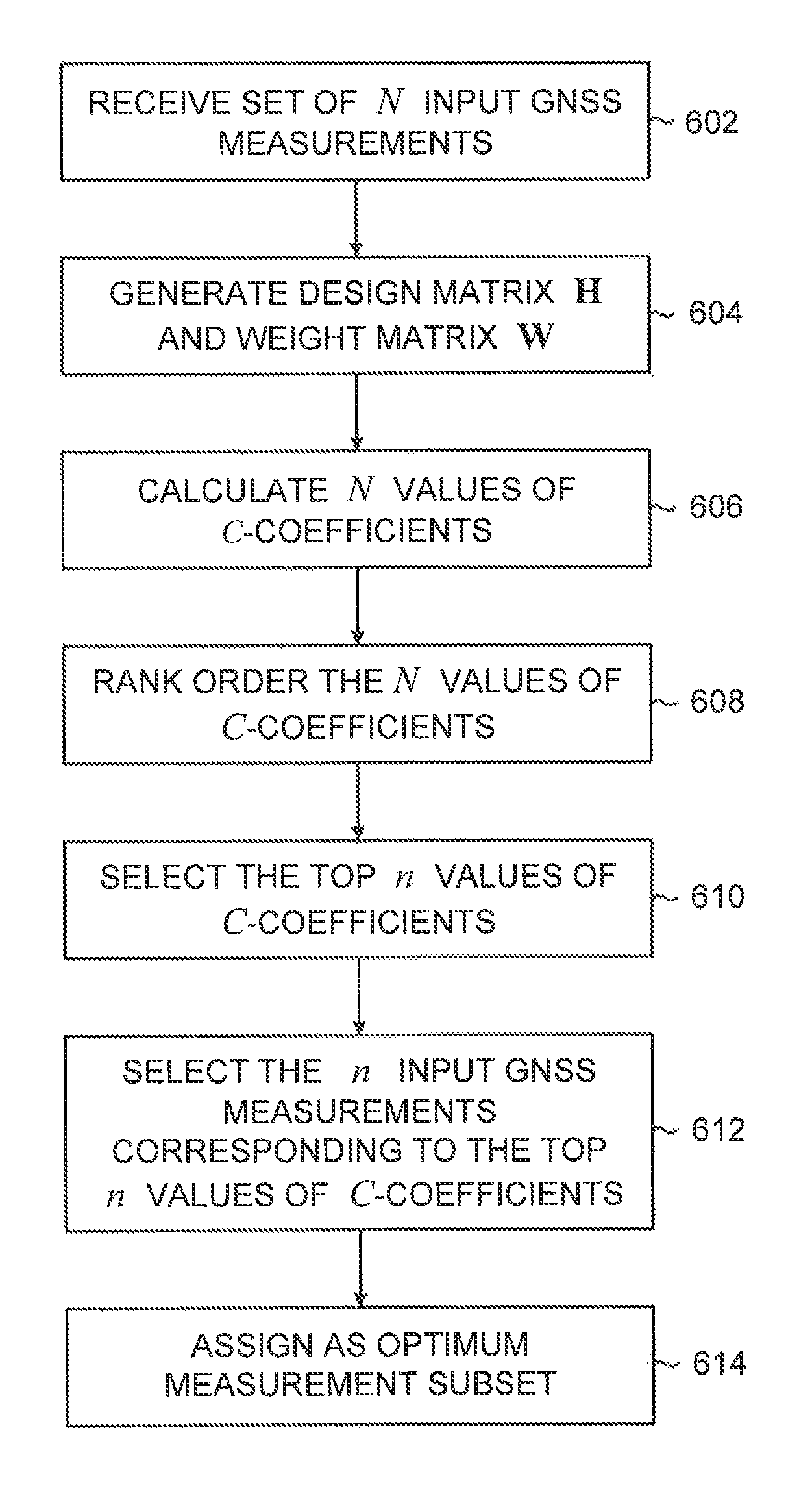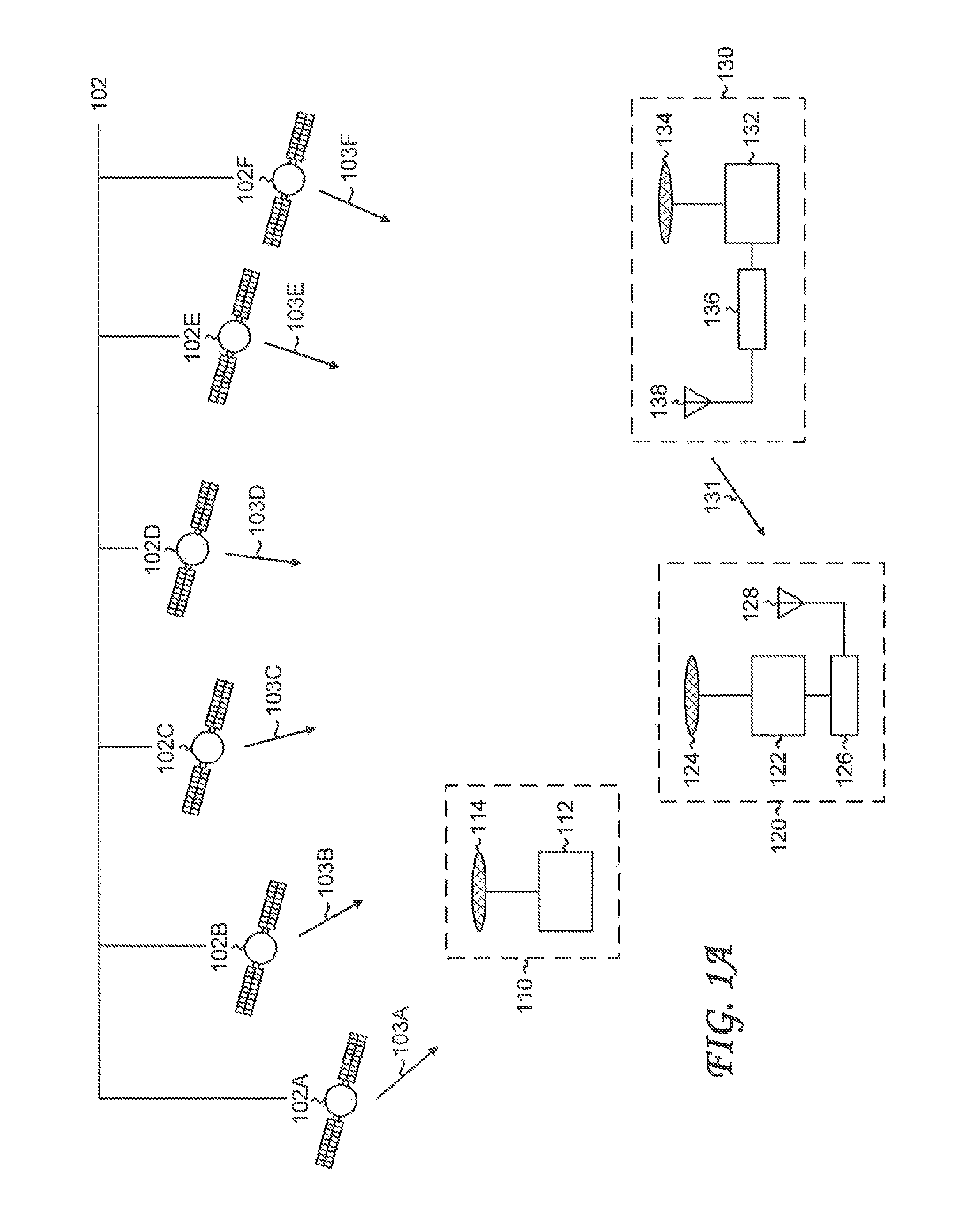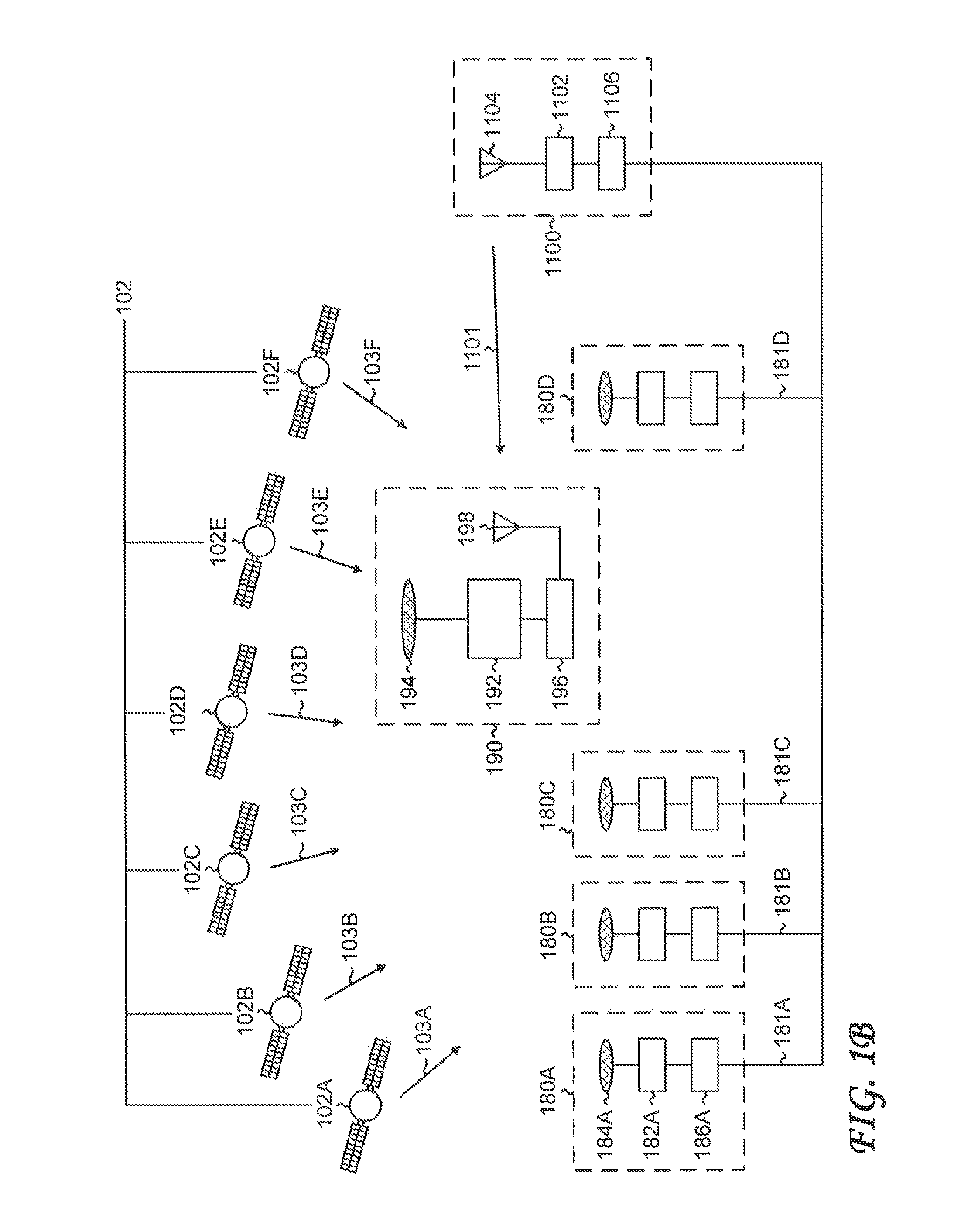Selection of a subset of global navigation satellite system measurements based on relation between shifts in target parameters and sum of residuals
a global navigation satellite and subset technology, applied in the field of global navigation satellite systems, can solve the problems of increasing the computational power of the receiver, increasing the computational increasing the computational so as to achieve the effect of increasing the computational power of the receiver, increasing the computational power, and increasing the computational power
- Summary
- Abstract
- Description
- Claims
- Application Information
AI Technical Summary
Benefits of technology
Problems solved by technology
Method used
Image
Examples
Embodiment Construction
[0061]Global navigation satellite systems (GNSSs) can operate in various operational modes. Different operational modes require equipment of different complexities and can determine target parameters (such as position, velocity, and time) with different accuracies. The types and quantities of data to be processed also depend on the operational mode. Several operational modes are summarized below.
[0062]FIG. 1A shows a high-level schematic of a global navigation satellite system (GNSS). A constellation of global navigation satellites 102 transmits navigation signals. Shown are six representative navigation satellites, denoted navigation satellite 102A-navigation satellite 102F, which transmit navigation signal 103A-navigation signal 103F, respectively. In general, the navigation satellites can belong to more than one global navigation satellite system (for example, GPS and GLONASS).
[0063]Refer to the GNSS measurement unit 110, which operates in a stand-alone mode. The GNSS measurement...
PUM
 Login to View More
Login to View More Abstract
Description
Claims
Application Information
 Login to View More
Login to View More - R&D
- Intellectual Property
- Life Sciences
- Materials
- Tech Scout
- Unparalleled Data Quality
- Higher Quality Content
- 60% Fewer Hallucinations
Browse by: Latest US Patents, China's latest patents, Technical Efficacy Thesaurus, Application Domain, Technology Topic, Popular Technical Reports.
© 2025 PatSnap. All rights reserved.Legal|Privacy policy|Modern Slavery Act Transparency Statement|Sitemap|About US| Contact US: help@patsnap.com



